
Um Qais: The Overlooked Gem of Jordan
Um Qais, also known as Gadara, is a hidden treasure in Jordan. This ancient city offers panoramic views of the Sea of Galilee, the Golan Heights, and the Yarmouk River. It is a place where history and natural beauty meet. The ruins of Gadara are well-preserved and offer a glimpse into the Greco-Roman period. The Roman theater, colonnaded streets, and ancient tombs are a must-see. The site is less crowded than other famous Jordanian landmarks, making it a peaceful spot to explore. The town of Um Qais itself is charming, with narrow streets and traditional houses. Local shops sell handmade crafts and delicious Jordanian food. The people are friendly and welcoming, eager to share their culture with visitors. Hiking trails around Um Qais offer stunning views and a chance to connect with nature. The area's rich flora and fauna add another layer of interest to any visit. Um Qais is not just about history and nature; it is also a place for relaxation. The nearby thermal baths are perfect for unwinding after a day of exploration. Whether you are a history buff, a nature lover, or someone looking for a peaceful getaway, Um Qais has something to offer.
Local tips in Um Qais
- Visit early in the morning to avoid the heat and enjoy the peaceful atmosphere.
- Wear comfortable shoes as the terrain can be uneven and you will be doing a lot of walking.
- Bring a hat and water bottle, especially during the summer months.
- Don't miss the local museum which provides context to the ruins and artifacts.
- Try the local cuisine in the village; the traditional Jordanian dishes are delicious.
- Check out the nearby hiking trails for breathtaking views and a dose of nature.
Um Qais: The Overlooked Gem of Jordan
Um Qais, also known as Gadara, is a hidden treasure in Jordan. This ancient city offers panoramic views of the Sea of Galilee, the Golan Heights, and the Yarmouk River. It is a place where history and natural beauty meet. The ruins of Gadara are well-preserved and offer a glimpse into the Greco-Roman period. The Roman theater, colonnaded streets, and ancient tombs are a must-see. The site is less crowded than other famous Jordanian landmarks, making it a peaceful spot to explore. The town of Um Qais itself is charming, with narrow streets and traditional houses. Local shops sell handmade crafts and delicious Jordanian food. The people are friendly and welcoming, eager to share their culture with visitors. Hiking trails around Um Qais offer stunning views and a chance to connect with nature. The area's rich flora and fauna add another layer of interest to any visit. Um Qais is not just about history and nature; it is also a place for relaxation. The nearby thermal baths are perfect for unwinding after a day of exploration. Whether you are a history buff, a nature lover, or someone looking for a peaceful getaway, Um Qais has something to offer.
When is the best time to go to Um Qais?
Iconic landmarks you can’t miss
Umm Qays
Uncover the ancient ruins and breathtaking landscapes of Umm Qays, a key historical landmark in northern Jordan that enchants every visitor.
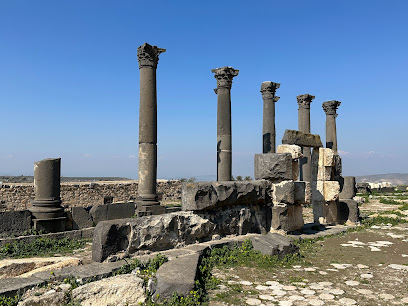
Archaeological Museum of Umm Qais.
Explore the Archaeological Museum of Umm Qais for an unforgettable journey through Jordan's ancient history and stunning landscapes.
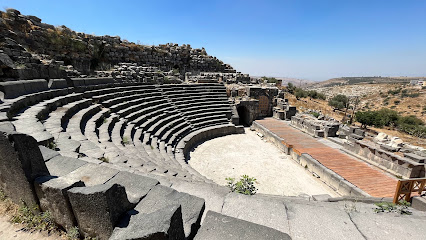
Roman theatre
Explore the stunning Roman Theatre in Umm Qais, a historical landmark that showcases ancient architecture and breathtaking views of Jordan's landscape.
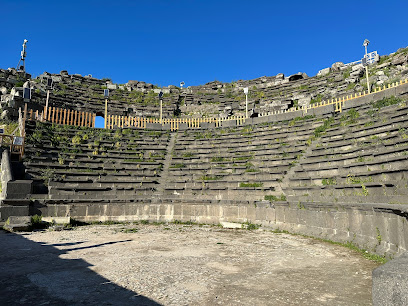
Gadara Aqueduct (water tunnel under umm qais)
Discover the ancient engineering marvel of the Gadara Aqueduct in Umm Qais, a historical landmark showcasing the ingenuity of Roman water management.
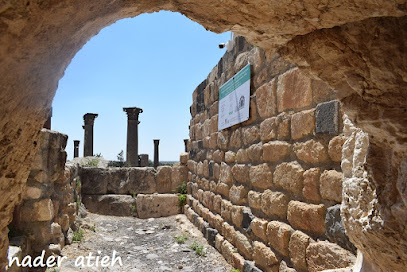
Central plaza
Discover the historical allure and stunning views of Central Plaza in Umm Qais, a must-visit destination for history enthusiasts and nature lovers alike.
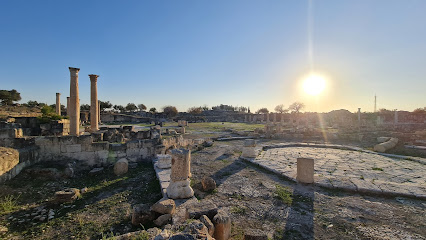
Unmissable attractions to see
Yarmouk Nature Reserve
Explore the breathtaking landscapes and rich biodiversity of Yarmouk Nature Reserve, a stunning nature preserve and national park in Jordan.
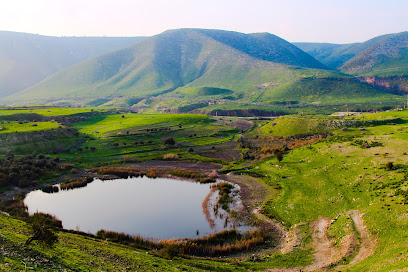
עין ג'ונס
Experience the rejuvenating hot springs and breathtaking landscapes of Hamat Gader, a unique tourist attraction in Israel's serene environment.
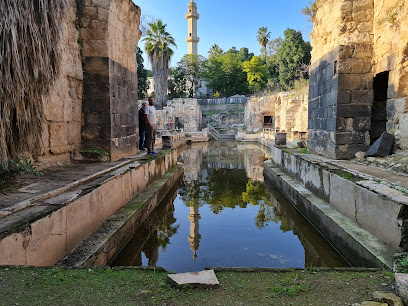
متنزه قرية الشعلة السياحية
Experience the serene beauty of Alshoulah Tourist Park in Saham, a perfect getaway for nature lovers and families seeking relaxation and fun.
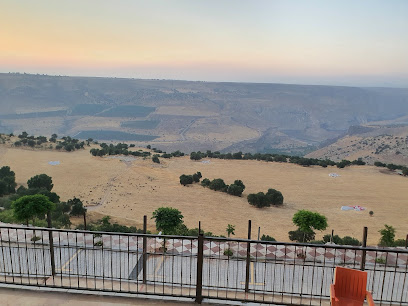
Al Arayes Lake
Explore the serene landscapes and hiking trails of Al Arayes Lake in Al-Himmah Al-Ordonyah, a perfect escape for nature lovers.
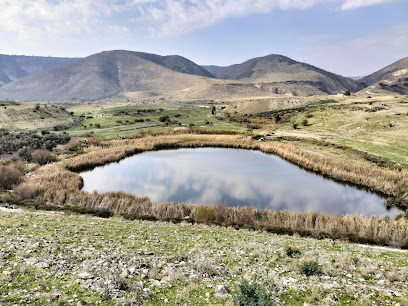
كهف النبي عيسى
Discover the breathtaking views and natural beauty of Kefal Nabi Aisa State Park, a serene escape in the heart of Jordan, perfect for outdoor enthusiasts.
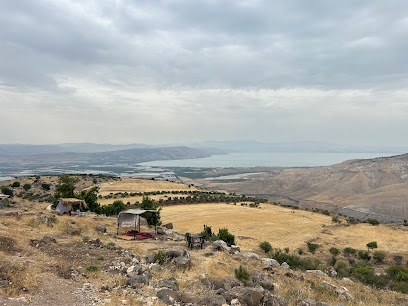
The old synagogue
Explore Peki'in, a historic village in Israel known for its ancient synagogue and rich cultural heritage surrounded by breathtaking landscapes.
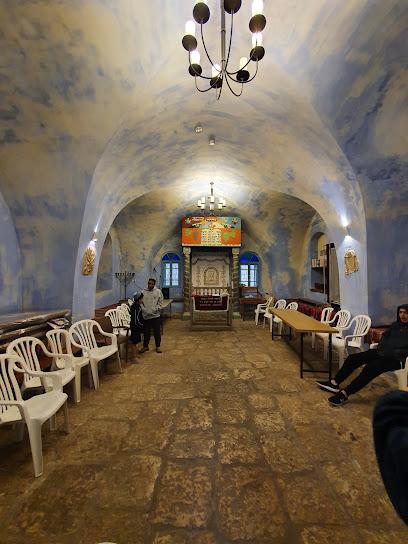
Umm Qais Countryside Cafe
Experience the tranquility and stunning views at Umm Qais Countryside Cafe, where local flavors meet breathtaking landscapes in Jordan.
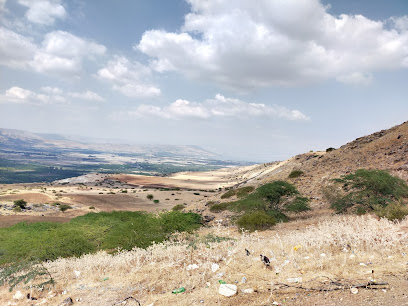
كهف النبي عيسى prophet jesus cave
Explore the Cave of Prophet Jesus in Al Adassiyah, a spiritual haven blending history and natural beauty, perfect for pilgrims and tourists alike.
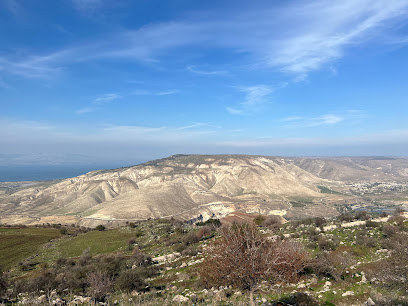
وقاص
Explore Waqqas, Jordan - a cultural treasure trove that beautifully blends history, stunning landscapes, and delightful local experiences for every traveler.
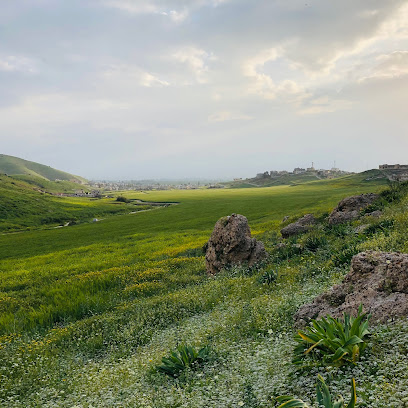
مطل بحيرة طبريا
Discover the breathtaking beauty of Tabarija Lake in Al Adassiyah, a perfect blend of tranquility, recreation, and stunning natural landscapes.
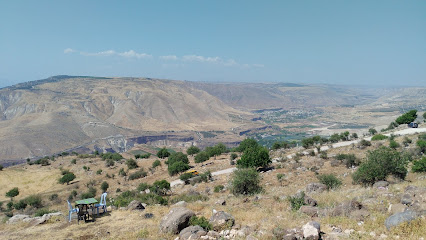
مكان جميل للنزهه
Discover the tranquility of Beautiful Park in Al Mashargah, a perfect retreat for relaxation, family picnics, and nature walks amidst lush greenery.
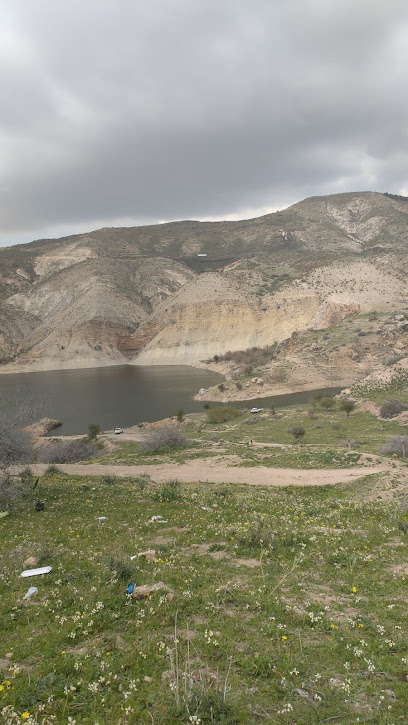
مطل على بحيره طبريا
Explore the natural beauty of Tabariya Lake Lookout, a stunning hiking area perfect for outdoor adventures and breathtaking views in Al Mokhaba Al Tahta.
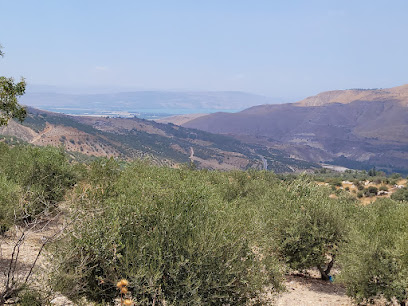
ابان
Discover the rich history, vibrant culture, and welcoming spirit of Irbid, a hidden gem in northern Jordan perfect for adventurous travelers.
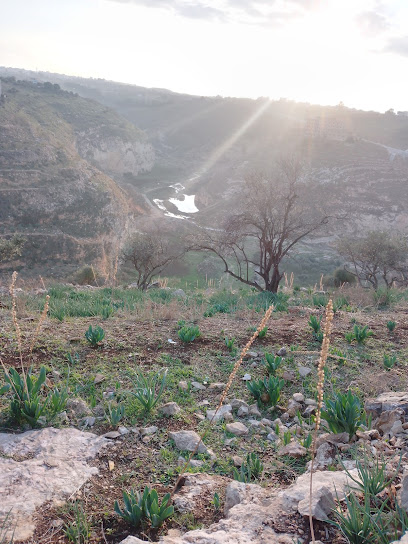
عين الباردة
Experience the serene beauty of Ain Al-Barde, a tranquil oasis in Saham, ideal for nature lovers and those seeking cultural richness.
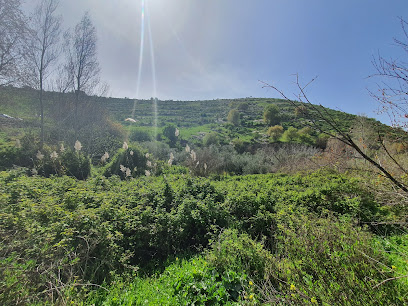
عقبة العشة
Discover the beauty and history of عَقْبَة العَشَّة in Saham, Jordan, where breathtaking views meet rich cultural heritage.
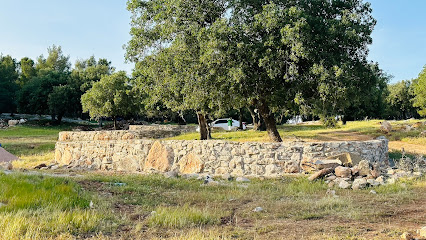
Essential places to dine
Romero Restaurant
Savor authentic Jordanian cuisine at Romero Restaurant in Amman - where tradition meets elegance.
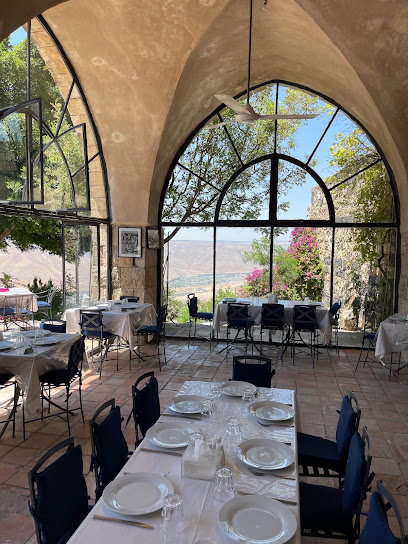
Umm Qais Rest House
Experience authentic Jordanian cuisine with breathtaking views at Umm Qais Rest House – a culinary haven in ancient ruins.
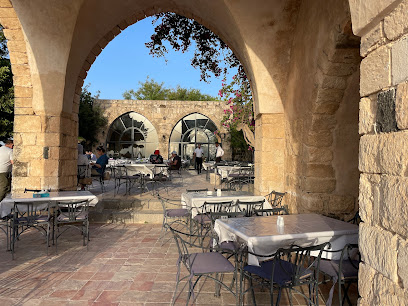
يمامة ام قيس Yamama Umm Qais
Experience authentic Jordanian cuisine at Yamama Umm Qais while enjoying breathtaking views of ancient ruins and stunning landscapes.
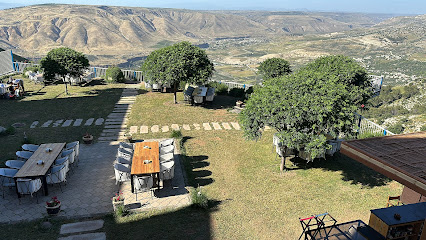
يمامة ام قيسYamama Umm Qais
Discover authentic Jordanian cuisine at Yamama Umm Qais while enjoying stunning views over ancient ruins and lush landscapes.
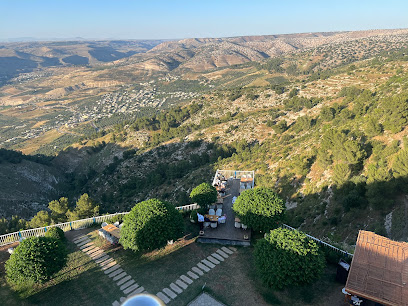
منتجع نهر الاردن
Experience tranquility and adventure at Jordan River Resort - your ideal escape into nature's embrace along this historic river.
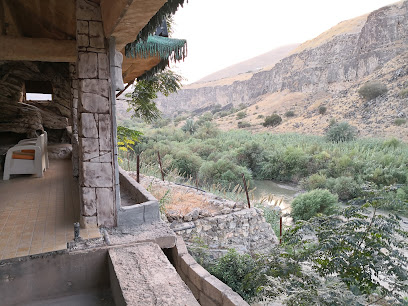
منتجع جدارا (استراحة الصويتي)
Discover authentic Jordanian flavors at منتجع جدارا (استراحة الصويتي) in Um Qais, where culinary excellence meets stunning scenery.
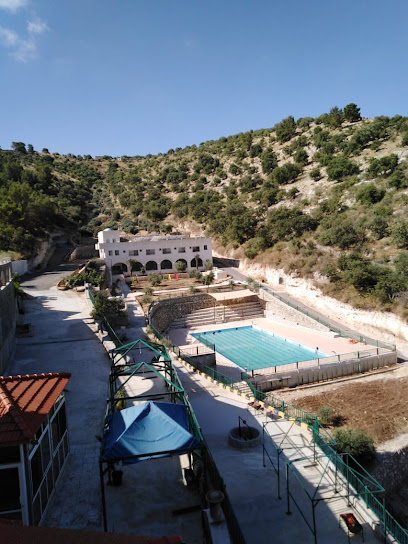
استراحه ومسابح اثينا الشرق
Explore استراحه ومسابح اثينا الشرق in Umm Qais—a tranquil park with refreshing pools and delicious local cuisine for an unforgettable getaway.
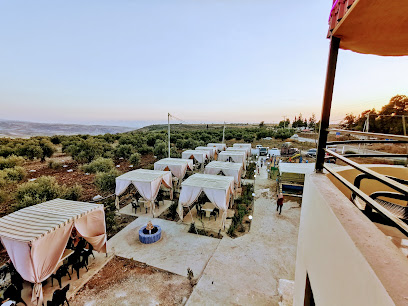
مسبح واستراحة أم قيس السياحية - Um Qais
Discover culinary treasures at Um Qais restaurant, where authentic Jordanian flavors meet breathtaking views.
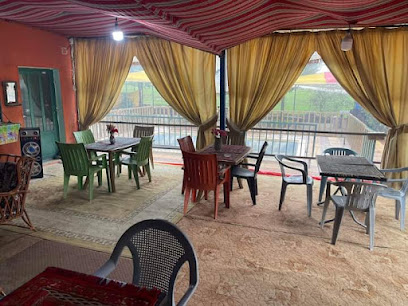
مقهى ومطعم ملتقى ام قيس
Experience authentic Jordanian cuisine at مقهى ومطعم ملتقى ام قيس with stunning views of ancient Umm Qais ruins.
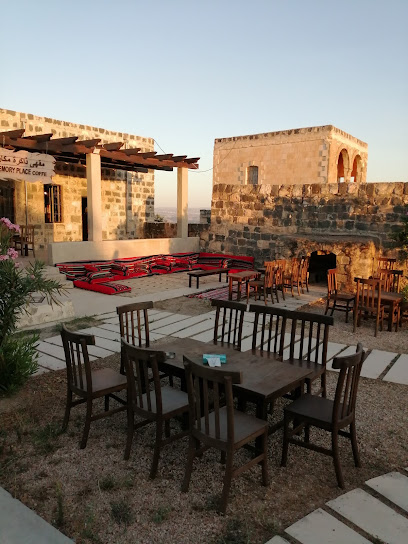
مطعم واستراحة ام قيس
Savor authentic Jordanian cuisine at مطعم واستراحة ام قيس while enjoying breathtaking views of Umm Qais' historical landscapes.
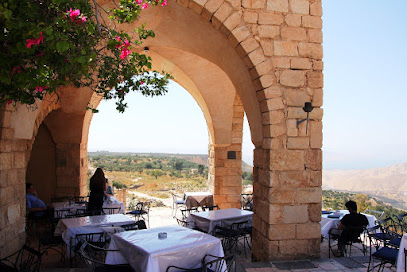
Shine Cottage
Experience authentic Jordanian cuisine at Shine Cottage while soaking in stunning views of ancient ruins and lush landscapes.
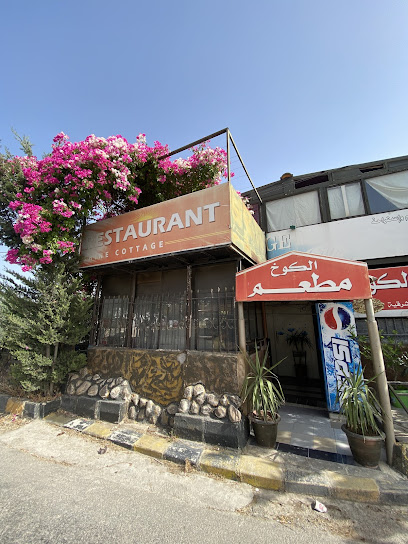
rubue Jadara restaurant
Experience authentic Jordanian cuisine with stunning views at Rubue Jadara Restaurant in Umm Qais.
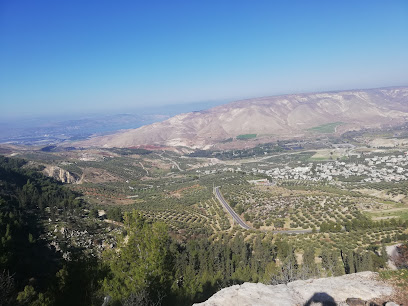
Feed Me Restaurant
Discover an exquisite blend of local and international flavors at Feed Me Restaurant in Amman, where every meal is a celebration of taste.

Markets, malls and hidden boutiques
Abdali Mall
Experience modern shopping, diverse dining, and vibrant entertainment at Abdali Mall in the heart of Amman.
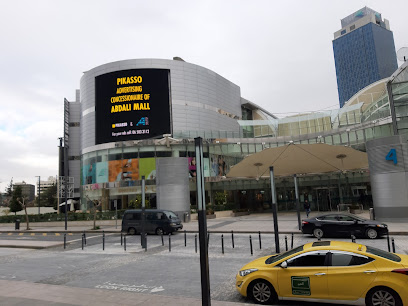
The Galleria Mall
Discover a world of shopping and dining at The Galleria Mall, the ultimate destination for a vibrant retail experience in Amman.
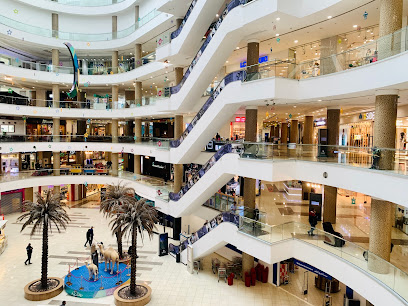
Umm Qays
Discover the ancient ruins of Umm Qays, a stunning historical landmark in Jordan with breathtaking views and rich archaeological heritage.
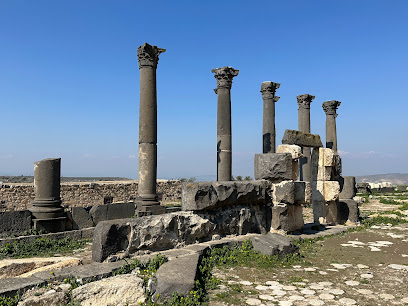
Archaeological Museum of Umm Qais.
Explore the rich cultural heritage and fascinating artifacts at the Archaeological Museum of Umm Qais, a must-visit destination in Jordan.
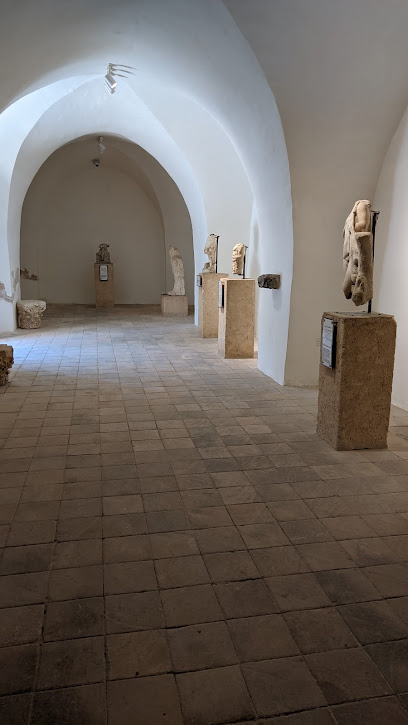
Darayseh Mall
Discover the ultimate shopping experience at Darayseh Mall in Irbid, where fashion meets comfort and style in a vibrant atmosphere.
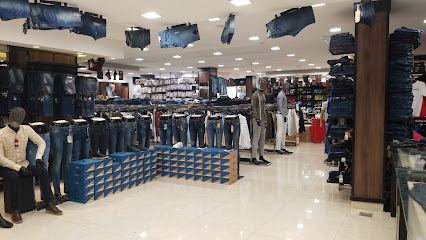
علي بيك الماركات العالمية - Ali Bey
Explore the vibrant fashion landscape at Ali Bey, your ultimate clothing destination in Irbid, Jordan.
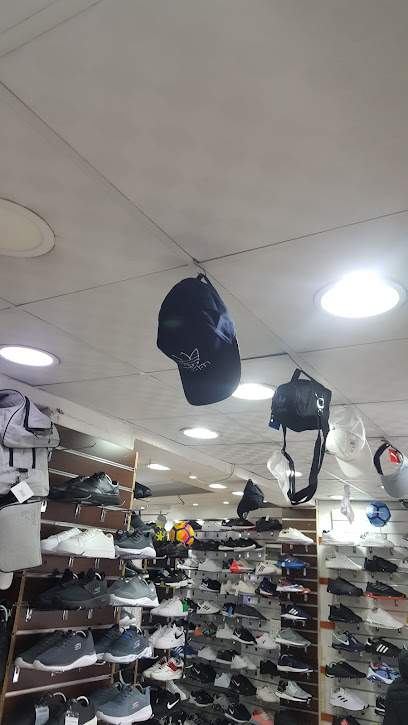
مؤسسة النور للألبسة الجاهزة
Explore local fashion at مؤسسة النور للألبسة الجاهزة in Irbid, offering stylish clothing for all ages and tastes at affordable prices.
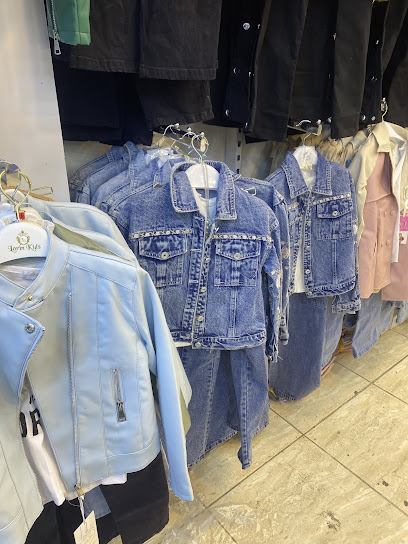
Kutkut Fashion
Explore the vibrant styles at Kutkut Fashion in Irbid, where contemporary clothing meets local flair for an unforgettable shopping experience.
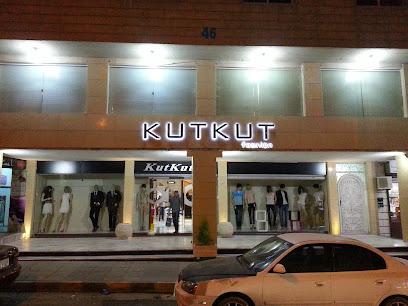
الوسطية سنتر
Experience the vibrant shopping and dining at Al-Wasatiyah Center, a true reflection of local culture and modern retail in Jordan.
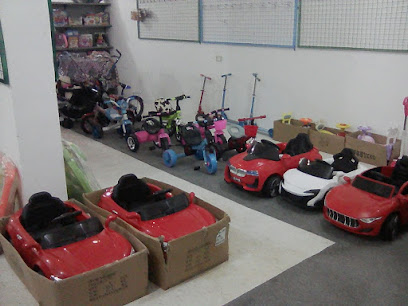
Gifts Center (Irbid City Center)
Discover unique gifts, cosmetics, and local treasures at the Gifts Center in Irbid City Center, a must-visit destination for all shoppers.
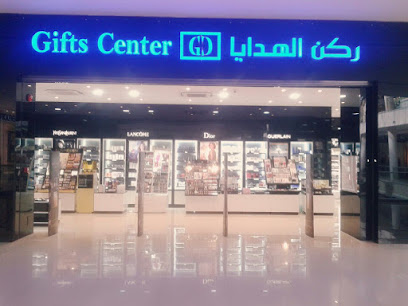
Souk Zara Souvenir and Handicraft shop
Discover authentic Jordanian handicrafts at Souk Zara, nestled in the Grand Hyatt Amman, and take home a piece of local artistry.
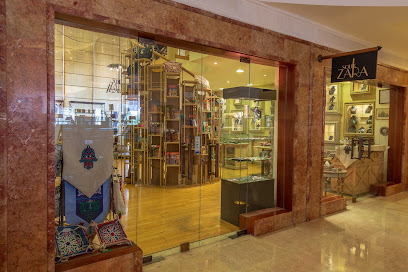
فيروز
Explore فيروز, Irbid's top gift shop, showcasing local crafts and unique souvenirs that capture the essence of Jordan's rich cultural heritage.
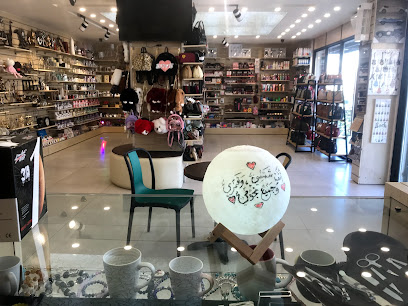
Good day coffee
Discover the charm of Good Day Coffee in Umm Qais, where exceptional brews meet breathtaking views, perfect for every traveler.
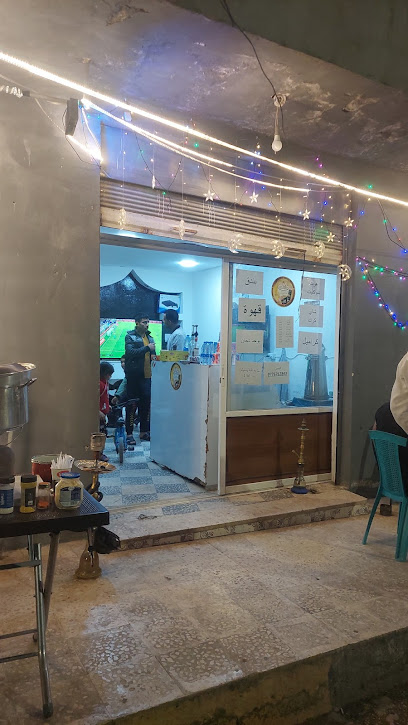
انا وامي
Explore unique fashion and local styles at أنا وامي, a charming clothing store in the heart of Irbid, Jordan.

Alhara Alfouqa Gallery
Discover Alhara Alfouqa Gallery in Umm Qais, where local craftsmanship meets the beauty of Jordanian culture through unique handmade souvenirs.
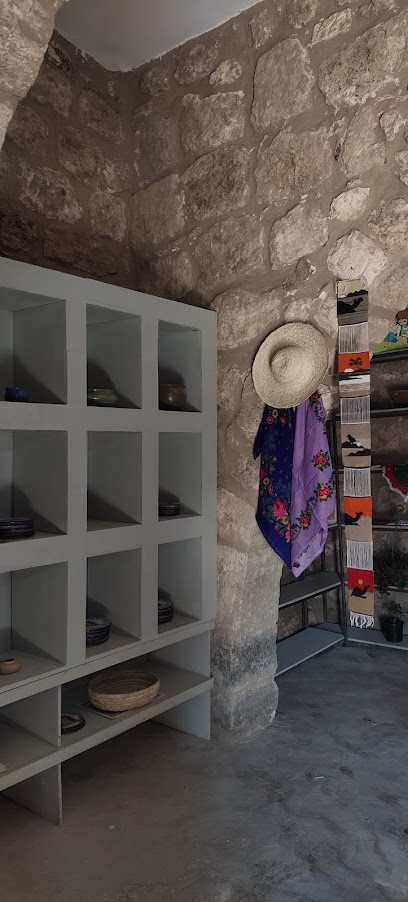
Essential bars & hidden hideouts
Rustic Bar and Eatery
Discover the lively atmosphere and diverse menu at Rustic Bar and Eatery in Amman, where every meal is a celebration of flavor and hospitality.
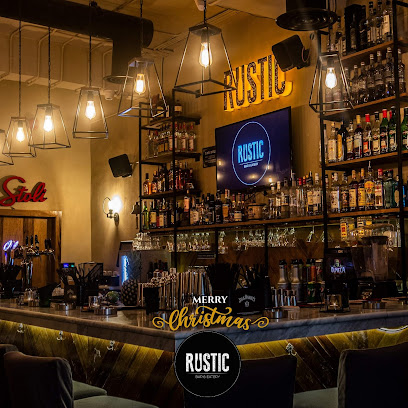
Umm Qais Rest House
Discover the enchanting flavors of Jordan at Umm Qais Rest House, where every meal is paired with breathtaking views and warm hospitality.
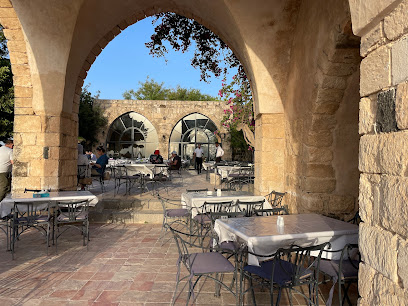
The Corner's Pub
Experience the vibrant atmosphere at The Corner's Pub in Amman, where delightful drinks and friendly service create the perfect social hub for tourists.
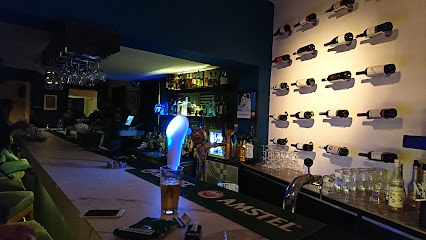
Good Pub
Discover Amman's vibrant nightlife at The Good Pub, where great drinks, delicious food, and lively entertainment await you.
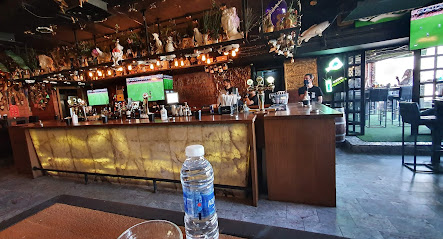
Dubliners
Experience the heart of Ireland in Amman at Dubliners, an Irish pub with authentic cuisine, vibrant atmosphere, and welcoming service.
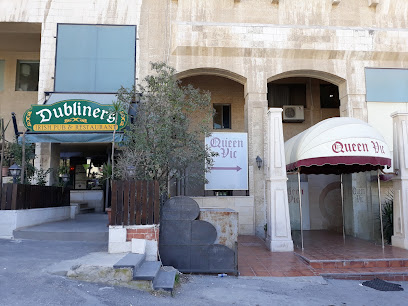
Murphy's - House of Rock
Discover the vibrant nightlife at Murphy's - House of Rock, a unique pub in Amman offering delicious food, refreshing drinks, and live music in a stunning garden setting.
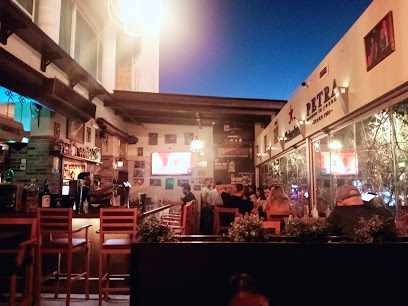
District Urban Rooftop
Experience breathtaking views and exquisite cocktails at District Urban Rooftop, Amman's premier bar for an unforgettable nightlife experience.
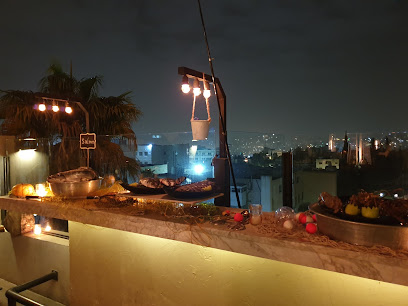
Maestro Bar and Restaurant
Experience vibrant dining at Maestro Bar and Restaurant, where local flavors meet international cuisine in the heart of Amman.
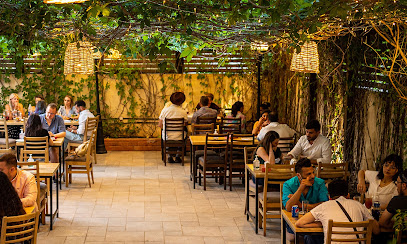
Houston's Restaurant And Pub
Discover the vibrant flavors of Amman at Houston's Restaurant And Pub, where grilled delights and a lively atmosphere await every visitor.
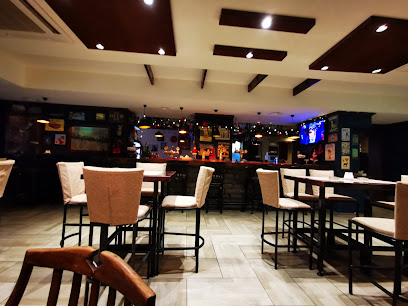
HQ Resto.Pub
Discover HQ Resto.Pub in Amman, where lively ambiance meets delicious food and drinks for an unforgettable night out.
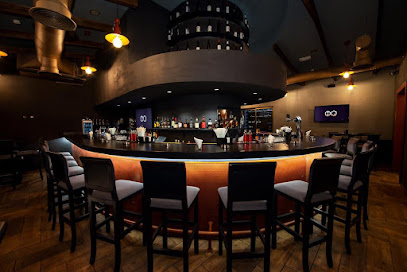
Sekrab
Discover the vibrant culinary scene at Sekrab, a must-visit restaurant and lounge on Amman's iconic Rainbow Street.
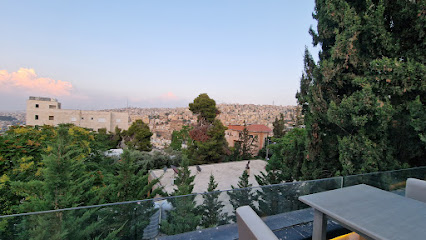
يمامة ام قيسYamama Umm Qais
Experience authentic Jordanian cuisine with stunning views at Yamama Umm Qais, a must-visit restaurant for tourists in Umm Qais.
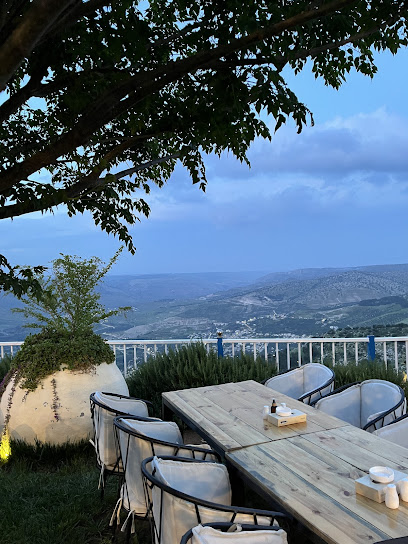
منتجع جدارا (استراحة الصويتي)
Discover the authentic flavors of Jordan at منتجع جدارا, a charming restaurant in Um Qais offering stunning views and delicious local cuisine.
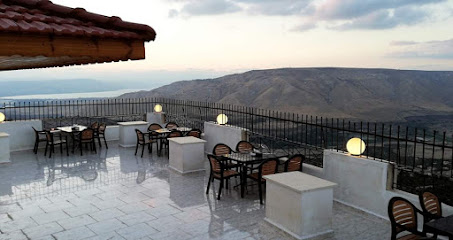
AL-Hara AL-Fouqa
Experience breathtaking views and delicious local cuisine at AL-Hara AL-Fouqa, the perfect café to relax in Umm Qais.
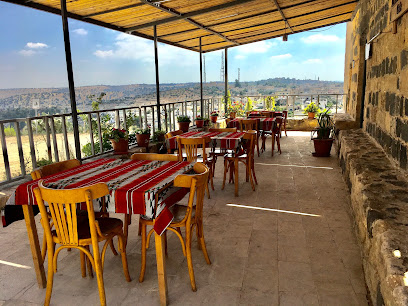
Local Phrases about Um Qais
-
- Helloمرحبا
[marhaba] - Goodbyeوداعا
[wada'an] - Yesنعم
[na'am] - Noلا
[la] - Please/You're welcomeمن فضلك / على الرحب والسعة
[min fadlik / 'ala ar-rahb was-sa'ah] - Thank youشكرا
[shukran] - Excuse me/Sorryعذرا
[u'dhran] - How are you?كيف حالك؟
[kayfa haluk?] - Fine. And you?بخير. وأنت؟
[bikhayr. wa'ant?] - Do you speak English?هل تتكلم الإنجليزية؟
[hal tatakallam al-inglizia?] - I don't understandلا أفهم
[la afham]
- Helloمرحبا
-
- I'd like to see the menu, pleaseأريد رؤية القائمة، من فضلك
[urid ru'ya al-qa'imah, min fadlik] - I don't eat meatأنا لا آكل اللحم
[ana la akl al-lahm] - Cheers!في صحتك!
[fi sahtak!] - I would like to pay, pleaseأريد أن أدفع، من فضلك
[urid an adfa', min fadlik]
- I'd like to see the menu, pleaseأريد رؤية القائمة، من فضلك
-
- Help!النجدة!
[an-najdah!] - Go away!اذهب بعيدا!
[idhab baeedan!] - Call the Police!اتصل بالشرطة!
[atasil bialshurta!] - Call a doctor!اتصل بطبيب!
[atasil bitalib!] - I'm lostلقد ضللت الطريق
[laqad dalalt at-tariq] - I'm illأنا مريض
[ana mareed]
- Help!النجدة!
-
- I'd like to buy...أريد أن أشتري...
[urid an ashtari...] - I'm just lookingأنا فقط أتفرج
[ana faqat atfarrag] - How much is it?بكم هذا؟
[bi kam hadha?] - That's too expensiveهذا غالي جدا
[hadha ghali jiddan] - Can you lower the price?هل يمكنك خفض السعر؟
[hal yumkinuk khafd as-sa'r?]
- I'd like to buy...أريد أن أشتري...
-
- What time is it?ما الساعة؟
[ma as-sa'ah?] - It's one o'clockالساعة الواحدة
[as-sa'ah al-wahidah] - Half past (10)العاشرة والنصف
[al-'ashrah wal-nisf] - Morningالصباح
[as-sabah] - Afternoonالمساء
[al-masa'] - Eveningالمساء
[al-masa'] - Yesterdayأمس
['ams] - Todayاليوم
[al-yawm] - Tomorrowغدا
[ghadan] - 1واحد
[wahid] - 2اثنان
[ithnan] - 3ثلاثة
[thalathah] - 4أربعة
[arba'ah] - 5خمسة
[khamsah] - 6ستة
[sittah] - 7سبعة
[sab'ah] - 8ثمانية
[thamaniah] - 9تسعة
[tis'ah] - 10عشرة
['asharah]
- What time is it?ما الساعة؟
-
- Where's a/the...?أين...
[ayna...] - What's the address?ما هو العنوان؟
[ma hu al-uniwan?] - Can you show me (on the map)?هل يمكنك أن تريني (على الخريطة)؟
[hal yumkinuk an tureni (ala al-kharitah)?] - When's the next (bus)?متى الحافلة القادمة؟
[mata al-hafilah al-qadimah?] - A ticket (to ....)تذكرة (إلى ...)
[tazkirah (ila ...)]
- Where's a/the...?أين...
History of Um Qais
-
Um Qais, known in antiquity as Gadara, was founded in the Hellenistic period, around the 3rd century BCE. Initially established by the Greeks, it became a significant cultural and intellectual hub within the Decapolis—a group of ten cities with strong Hellenistic influence in the region.
-
During the Roman era, Gadara flourished as a center of arts and philosophy. The city was known for its impressive architecture, including the construction of grand public buildings, theaters, and baths. Gadara was also the birthplace of several notable philosophers and poets, contributing to its reputation as a seat of learning and culture.
-
In the Byzantine period, Um Qais continued to thrive. Christianity spread throughout the region, and numerous churches were built, including the prominent basilica that stands as a testament to the city's religious significance during this era. The Byzantine influence is evident in the architectural styles and the remnants of mosaics found in the area.
-
The Islamic conquest in the 7th century CE brought significant changes to Um Qais. The city became part of the expanding Islamic Caliphate, and its strategic location made it a notable administrative and military center. The influence of Islamic culture is still visible in the remnants of mosques and other buildings from this period.
-
Under Ottoman rule, Um Qais was a relatively quiet town but retained its historical significance. The Ottomans built new structures, including the notable Ottoman village that stands today. This period also saw the integration of local Bedouin culture, adding another layer to the city's diverse historical tapestry.
-
The modern rediscovery of Um Qais began in the 19th century, attracting archaeologists and historians from around the world. Excavations have uncovered much of the ancient city's layout and artifacts, leading to significant efforts in preservation and restoration. Today, Um Qais is a prominent archaeological site, offering insights into its rich historical and cultural legacy.
Um Qais Essentials
-
Um Qais is located in northern Jordan, near the borders with Israel and Syria. The nearest major airport is Queen Alia International Airport in Amman, approximately 120 kilometers away. From Amman, you can rent a car, take a taxi, or use public transportation to reach Um Qais. The drive from Amman to Um Qais typically takes around 2 hours by road. Public buses and minibuses (servees) operate from Amman to the nearby city of Irbid, from where you can take a taxi to Um Qais.
-
Um Qais is a small town, and many of its attractions are within walking distance. Taxis are available and relatively inexpensive for longer trips. While public buses and minibuses do operate within the region, they can be infrequent. Renting a car offers the most flexibility for exploring Um Qais and its surrounding areas at your own pace. Bicycles can also be rented for those who prefer an eco-friendly way to explore the town.
-
The official currency in Jordan is the Jordanian Dinar (JOD). Credit cards are accepted in some hotels, restaurants, and shops, but it is advisable to carry cash, especially when visiting smaller establishments and rural areas. ATMs are available in larger towns like Irbid, but it is wise to withdraw sufficient cash before arriving in Um Qais.
-
Um Qais is generally a safe destination for tourists. However, it is always advisable to take standard precautions. Avoid walking alone at night in unfamiliar areas and keep an eye on your belongings in crowded places. There are no specific high-crime areas targeting tourists in Um Qais, but staying vigilant and aware of your surroundings is always recommended.
-
In case of emergency, dial 911 for immediate assistance. The local police station and medical facilities are available in nearby towns such as Irbid. It is recommended to have travel insurance that covers medical emergencies. For minor health issues, there are pharmacies in the area where you can purchase over-the-counter medications.
-
Fashion: Do dress modestly, particularly when visiting religious or historical sites. Avoid wearing revealing clothing. Religion: Do respect local customs and traditions. Always dress modestly and be quiet when visiting religious sites. Public Transport: Do be respectful and give up your seat to elderly passengers. Don't eat or drink on public transport. Greetings: Do greet people with a handshake. Use 'As-Salaam-Alaikum' (Peace be upon you) as a respectful greeting. Eating & Drinking: Do try local delicacies and accept food offerings graciously. Don't refuse hospitality, as it is considered impolite.
-
To experience Um Qais like a local, visit the local markets where you can buy fresh produce and traditional Jordanian goods. Engage with locals, as they are often friendly and willing to share stories about the town's history and culture. Don't miss visiting the ancient ruins of Gadara, which offer stunning views of the Sea of Galilee, the Golan Heights, and the Jordan Valley. For a unique experience, take a guided tour to explore the lesser-known historical sites and learn more about the area's rich heritage.
Nearby Cities to Um Qais
-
Things To Do in Irbid
-
Things To Do in Tiberias
-
Things To Do in Beit She'an
-
Things To Do in Nazareth
-
Things To Do in Safed
-
Things To Do in Jerash
-
Things To Do in Mafraq
-
Things To Do in Akko
-
Things To Do in Acre
-
Things To Do in Haifa
-
Things To Do in Nahariya
-
Things To Do in Salt
-
Things To Do in Zikhron Ya'akov
-
Things To Do in Rosh HaNikra
-
Things To Do in Caesarea








